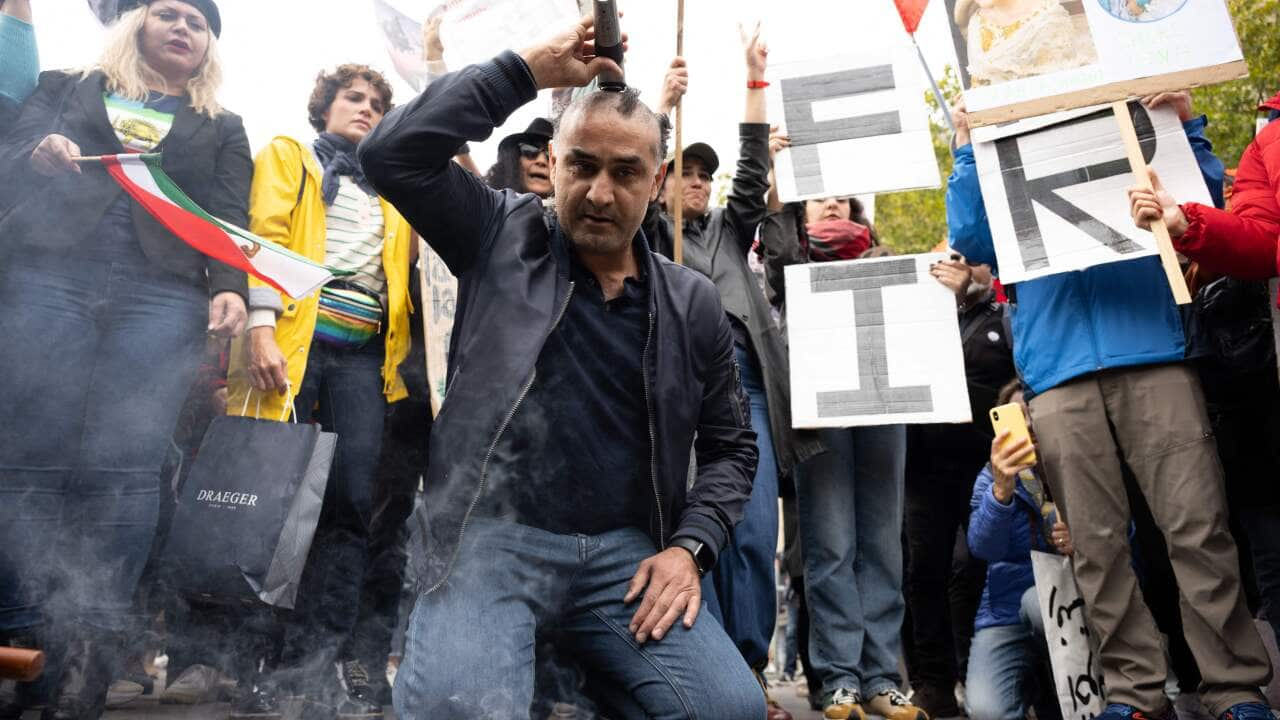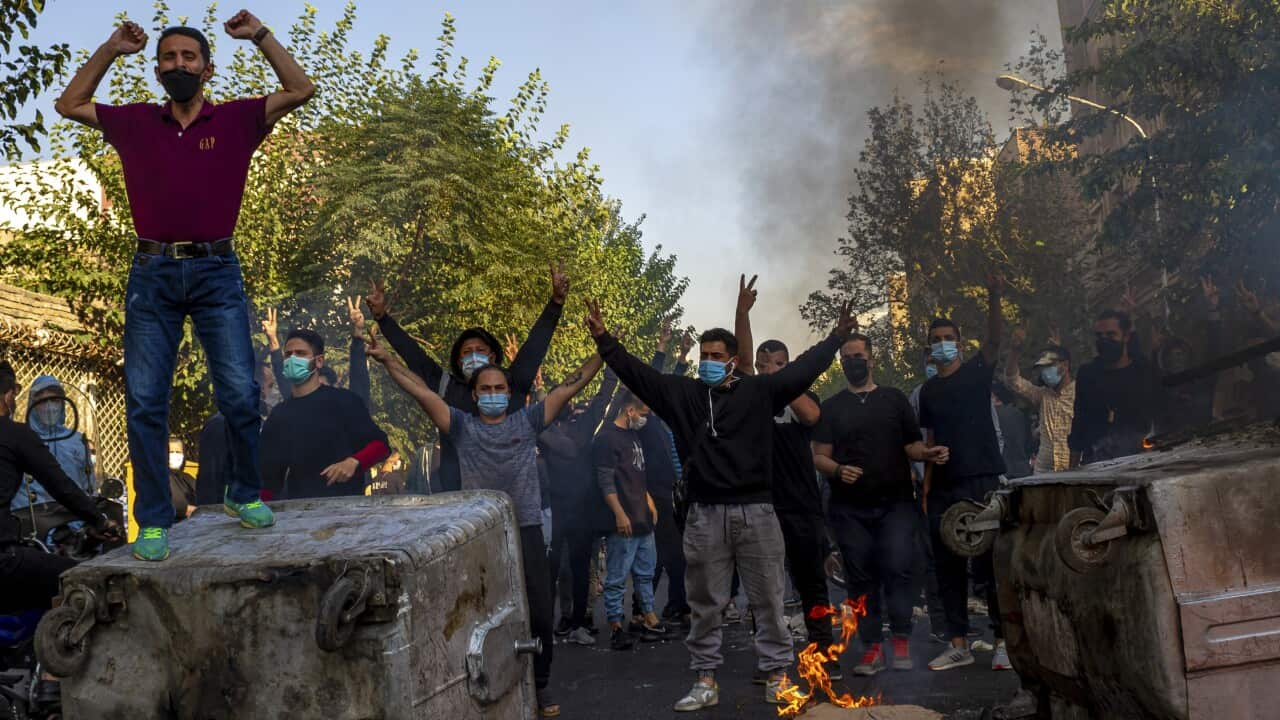KEY POINTS
- Iranian women's rights activists say men have to be partners in the struggle to achieve equality.
- A feminist organisation in the Middle East says it needs men on board to implement change.
An Iranian women's right activist is calling on more men to support the protest movement engulfing the nation, saying it should be a moment of "awakening" for many men.
Iranians have continued widespread demonstrations across the country after the death of Kurdish Iranian woman Mahsa Amini who was arrested — and allegedly beaten by morality police — over her headscarf.
Women and men have taken to the streets demanding freedom and calling for women's rights for almost two months. Human rights groups say more than 200 people have been killed in the crackdown against the demonstrations.
Iranian artist and activist Shahrzad Changalvaee told SBS News that the uprising is an "awakening moment" for many men in Iran.
"Through the tragic death of our sister Mahsa Zhina Amini, an awakening moment is arriving for many men, and they need to embrace it by standing for women rights," she said.
"Because silence is violence, and it has been in the past 43 years too."
In the Iranian Revolution of 1978-1979, the government was overthrown and replaced with an Islamic republic under the rule of Ayatollah Ruhollah Khomeini.
Ms Changalvaee, who is based in the United States, said since then, women have been "alienated and dehumanised through systematic religious discriminations turning into laws".
She said it was time for men to stand up against the regime and its oppression of women.

Iranian activist and artist Shahrzad Changalvaee. Source: supplied.
"They need to see that it has been unjust, horrifying and oppressive this entire time.
"Women's rights are human rights."
'Men have to be partners'
The protests kicked off on 16 September after the death of 22-year-old Ms Amini, who had been arrested by Iran's morality police for wearing her hijab improperly, in violation of Iran's mandatory headscarf law for women.
Witnesses said Ms Amini had been severely beaten by Iranian security forces — a claim the forces deny.
Sussan Tahmasebi, director of FEMENA, a feminist movement advocating for women's rights in the Middle East and North Africa (MENA) and Asia, told SBS News that fighting for equality and justice would benefit all Iranians.
"That's why men have to be partners in the struggle to achieve equality and that is why we see so many men out there in protests today," she said.
"Men and women both realise that the fight for freedom and rights will benefit all of society."
Ms Tahmasebi said the protests were the start of a broader battle. While the protests initially were focused on the demand for justice and women's rights, they have now expanded to include demands for fundamental freedoms and serious political change, she said.
"All Iranians — women and men — are demanding freedoms and an end to repression that undermines their rights."
The fight against 'gender apartheid'
Like Ms Tahmasebi, Iranian-Kurdish writer Behrouz Boochani believes the movement is the start of a broader aspiration for the liberation of the Iranian people — regardless of gender.
"Everyone in Iran has had experience with this brutal mentality and system against women," he told SBS News.
He said Iranian men understood the oppression of women.
"Mothers, sisters, neighbours, girlfriends, partners — men have been witnessing the brutality and humiliation against them," he said.
Mr Boochani said the Iranian government's system — which protesters are fighting against — is based on "gender apartheid".
"If they can bring down this gender apartheid, that means the system will collapse, because the ideology is established on that," he said.
"They want freedom. They want secularism. And they want a democratic system free from religion."
One of the Iranian men standing up for women's rights, and against Iran's Supreme Leader Ali Khamenei, is Shervin Hajipour.
Mr Hajipour was arrested by Iranian authorities following the growing popularity of his song Baraye, which has become one of the voices of the Mahsa Amini protests.
Another Iranian rapper, Toomaj Salehi, was also arrested for his dissent. The Fars News Agency, managed by the powerful Islamic Revolutionary Guards, reported he was arrested last week.
In an interview with Canadian broadcaster CBC before his arrest, Mr Salehi said the protesters would not back down.
"Today, Iran's society is different," he said.
"We don't accept one leader. We don't see an individual as so grand.
"We need different leaders, with our language."
Mr Salehi said there was a "transition council" being shaped and that it didn't matter if members were in Iranian jails or outside the country.

Shervin Hajipour (pictured on screen) was arrested by Iranian authorities following the growing popularity of his song Baraye, which has become one of the voices of the Mahsa Amini protests. Source: AFP / KHALED DESOUKI
At least 270 people have been killed and around 14,000 arrested since the beginning of the protests.











